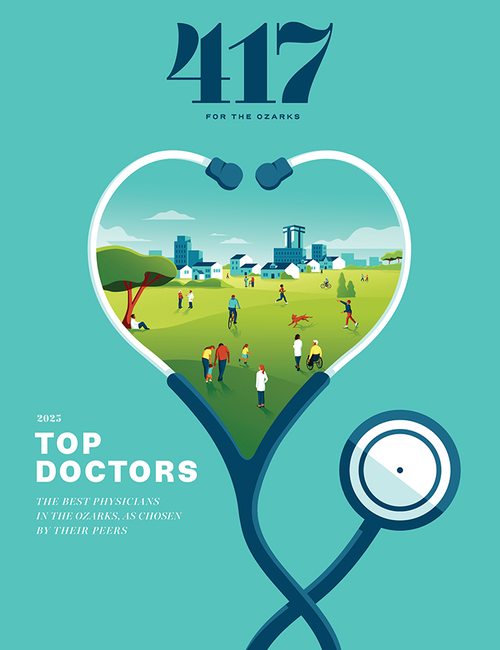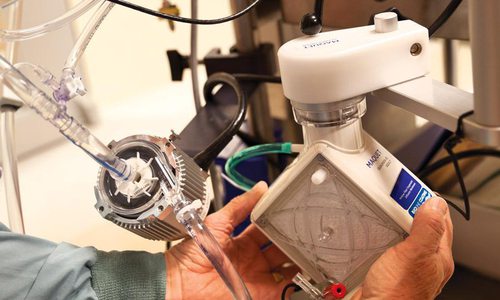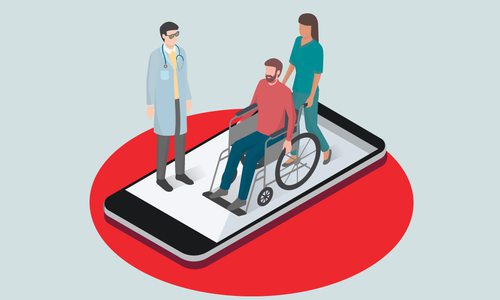
Lifestyle
During Cervical Health Awareness Month, Prevention is Key
In recognition of Cervical Health Awareness Month, we spoke with community members about prevention, treatment and, most importantly, hope.
By Lillian Stone
Jan 2019

Ali Rich is a fighter. In July of 2017, the then 32-year-old mother of two was diagnosed with stage 4 cervical cancer. Now, nearly two years later, Rich has fought her way through multiple rounds of chemotherapy. She’s undergone both internal and external radiation and several surgeries in order to combat the cancer that has turned her world upside down. It has been an emotionally and physically taxing journey, but Rich has been able to stay positive—largely thanks to the connections she’s made through GYN Cancers Alliance, or GYNCA. GYNCA is a Springfield-based gynecologic cancer nonprofit connecting patients to other survivors, financial resources and, perhaps most importantly, hope.
Warriors in Teal
GYNCA began in 2001 as a small gynecologic cancer support group. Now, the organization serves patients in 26 counties and offers everything from care packages with teal nail polish—the official color of gynecologic cancers—to car repairs and gas money to help patients get to treatments. The breadth of service is quite a feat considering that GYNCA only has two staff members: Executive Director Jan Robbins and Client Services Director Amber Kline. Between the two of them, they’re committed to easing the mental and financial strain that comes with a grueling cancer battle—a battle that impacts thousands of people every year.
According to the American Cancer Society, more than 13,000 new cases of cervical cancer were diagnosed in 2018. Up to 99 percent of those cases were caused by human papillomavirus, or HPV, a sexually transmitted virus that affects an estimated 80 percent of the population. There are 200 strains of HPV, and not all of them are dangerous—but there are several strains that can cause gynecologic disease. The tricky part? There is currently no HPV screening method for men, and the virus can lie dormant in women for years. Luckily, one vaccine has the potential to eradicate the most dangerous strains of HPV: Gardasil.
The Cancer Vaccine
According to Dr. Marcia Hernandez, a gynecologic oncologist at Mercy Hospital Springfield, the current Gardasil-9 vaccine targets nine of the most dangerous strains of HPV. “This vaccine is truly a cancer vaccine,” Hernandez say. “It’s not just preventing cervical cancer—it prevents all cancers that are related to the HPV virus. That includes head and neck cancer, male genital cancers, vulvar cancer and cervical cancer.”
When Gardasil entered the market in 2006, it was only approved for patients between the ages of 9 and 26. The vaccine was recently approved for adults up to age 45, but parents are encouraged to vaccinate their children as early as possible. That’s something Springfield Public Schools takes very seriously. According to Jean Grabeel, director of health services for Springfield Public Schools, the vaccine is available free of charge for all students at annual SPS vaccine clinics.
Advocating For Your Health
The Gardasil vaccine is powerful, but regular Pap smears are an equally important part of preventative health care. The current recommendations from the American College of Obstetricians and Gynecologists (ACOG) vary by age: Women between the ages of 30 and 65 are recommended to have HPV screenings and Pap smears every five years, while younger women have slightly more stringent recommendations. Regardless of age or your HPV status, Hernandez strongly urges women to seek an annual pelvic exam from a board-certified OBGYN or experienced internal medicine doctor. Rich agrees and adds she believes women older than 21 should demand Pap smears every year. “Going and getting a pap smear is a lot less unpleasant than what I’ve gone through over the last 18 months,” Rich says. “It’s so important to be an advocate for your own health. If you’re not getting the answers you need, keep pushing and don’t be afraid to get a second opinion.”












